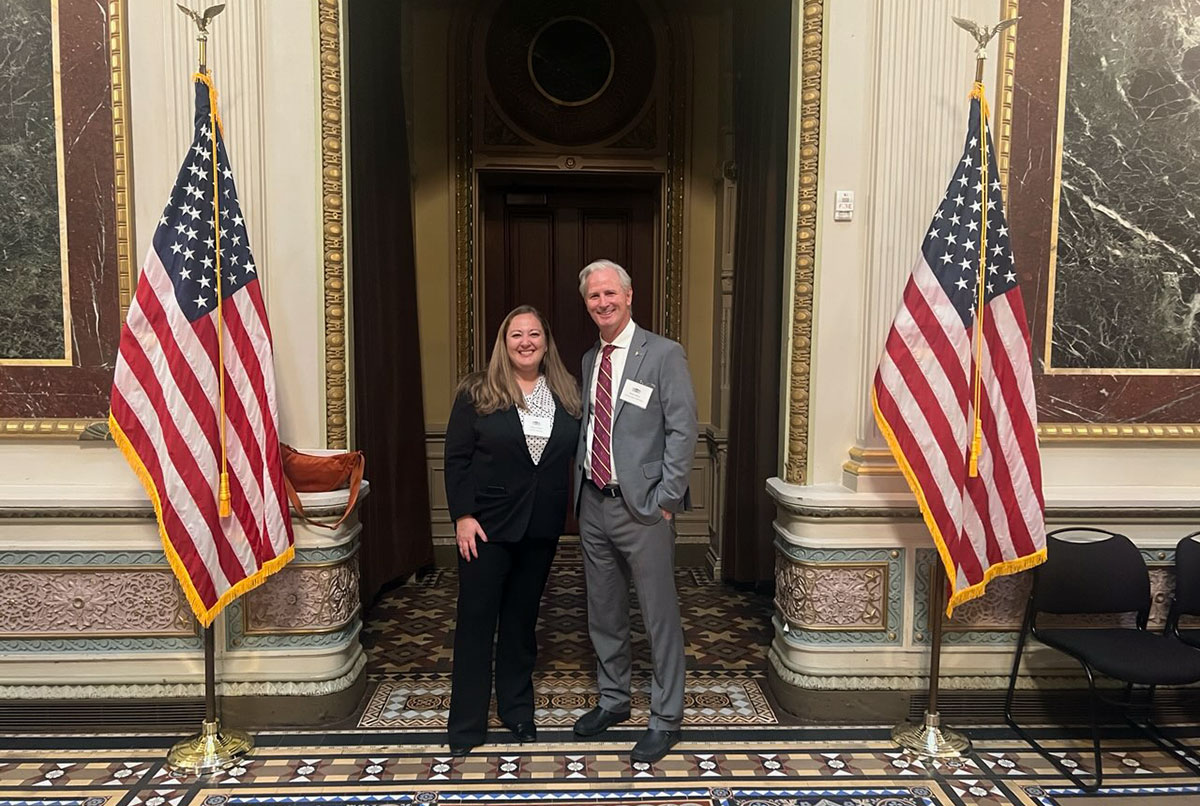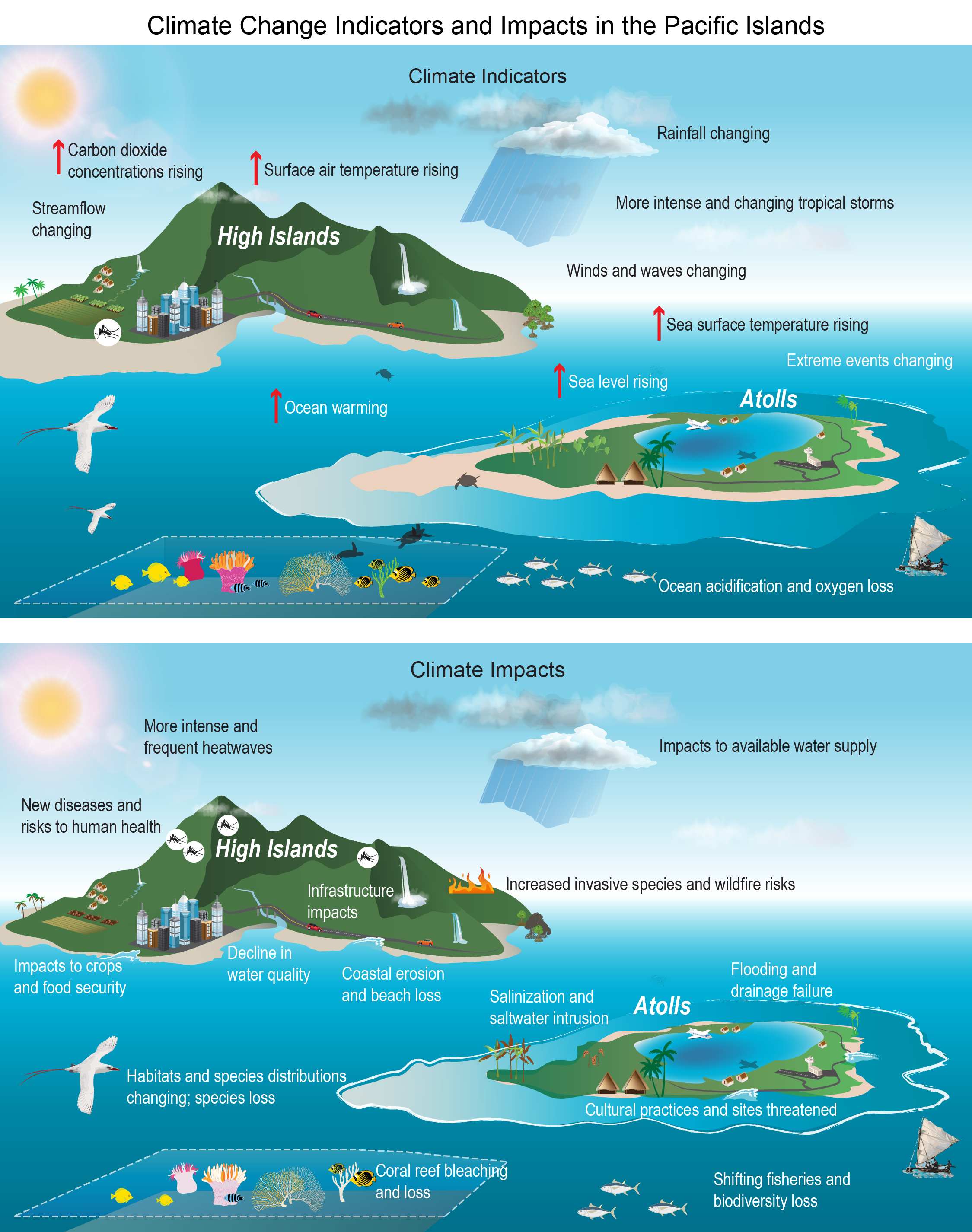Clark professor leads chapter of Fifth National Climate Assessment, joins peers at White House unveiling

Geography Professor Abby Frazier joined a team of scientists at the White House as the U.S. government released the Fifth National Climate Assessment on Nov. 14. Frazier led the report’s chapter on Hawai‘i and Pacific Islands, where she has conducted climate research for more than a decade.
“Climate change continues to threaten things we care about,” she says. “As the devastating hurricane-fueled wildfires on Maui and Typhoon Mawar in Guam made clear, when communities are already hurting from stressors like COVID-19, extreme weather can multiply harms.
“The sooner we scale up global action to curb threats from climate change, the better,” she adds. “Fortunately, cutting emissions or preparing for new extremes also creates immediate local benefits — improved health, a stronger economy, and more resilient communities.”
The Hawai‘i and Pacific Islands chapter’s key takeaways include:
- Climate change impairs access to healthy food and water. Increasing temperatures, altered rainfall, flooding, pollution, and fisheries decline will further affect food and water availability.
- Climate change undermines human health. Climate shocks and stressors compromise healthcare and worsen long-standing social and economic inequities that contribute to illness, but community strengths and adaptation measures can boost resilience.
- Rising sea levels harm infrastructure and island economies. Sea level rise intensifies loss of territory and disrupts livelihoods, but governments and communities are innovating through renewable energy, green infrastructure, and sustainable economic growth.
- Responses help to safeguard tropical ecosystems and biodiversity. Increased fire risk, severe droughts, and ocean changes have broad negative impacts on native plants and wildlife, and ocean ecosystems. Effective adaptation strategies include ecosystem protection and restoration, invasive species measures, and fire prevention.
- Indigenous peoples and their knowledge systems are central to the resilience of island communities amidst the changing climate.
“I’m really excited to get this information in the hands of more community members and spread the word,” Frazier told the Honolulu Civil Beat. She also was interviewed by the Honolulu Star-Advertiser, Hawai‘i Tribune Herald, Hawai‘i Public Radio/KHPR-FM, and Talk of the Commonwealth on Radio Worcester.
As the fires blazed last summer, journalists from CNN and Anderson Cooper 360, the New York Times, the Los Angeles Times, Washington Post, BBC Radio, and other outlets reached out to Frazier about whether climate change was to blame for the Maui inferno.
“There’s likely a climate change signal in everything we see,” she told the New York Times. “All of this is happening on a background of increased temperatures and drying. We’ve seen long-term trends that have pointed to things getting drier in Hawai‘i, and droughts getting worse.”
Frazier first began studying climate change impacts in Hawai‘i and the Pacific islands as a graduate student at the University of Hawai‘i at Mānoa, where she received her Ph.D. in 2016. She served as a postdoctoral research geographer at the U.S. Department of Agriculture Forest Service Institute of Pacific Islands Forestry and research fellow at the East-West Center in Honolulu before joining Clark as assistant professor of geography in 2021.
The National Climate Assessment provides authoritative scientific information about climate change risks, impacts, and responses across the United States. Mandated by Congress, the assessment reflects the scientific consensus and is widely used for decision-making but does not include policy recommendations nor advocate for any specific policy.



